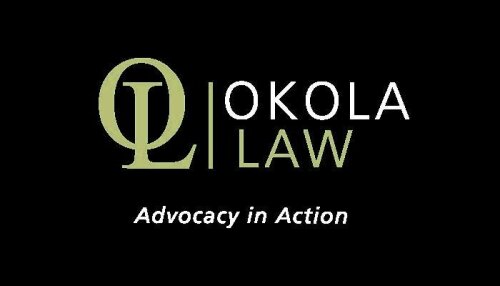Best Employment Benefits & Executive Compensation Lawyers in Toronto
Share your needs with us, get contacted by law firms.
Free. Takes 2 min.
List of the best lawyers in Toronto, Canada
About Employment Benefits & Executive Compensation Law in Toronto, Canada
Employment Benefits & Executive Compensation law in Toronto, Canada governs the various arrangements provided by employers to their employees that go beyond just salary. These can include health benefits, pensions, bonuses, stock options, and other incentives designed to attract and retain talent. Executive compensation refers specifically to the pay structure and benefits given to top executives. Law in this field is primarily governed by federal and provincial regulations which ensure fair practices and compliance across industries. In Toronto, a bustling economic hub, these laws are vital in maintaining a balanced employer-employee relationship.
Why You May Need a Lawyer
Engaging a lawyer with expertise in Employment Benefits & Executive Compensation might be necessary in several situations. Common scenarios include negotiating employment contracts, addressing discrepancies in benefit entitlements, handling retirement plans, or resolving disputes regarding bonuses and stock options. Legal assistance becomes crucial when navigating the complex regulations of equity and stock compensation or ensuring compliance with tax laws. Additionally, during mergers and acquisitions, both employers and executives often require detailed advice to safeguard their interests in compensation agreements.
Local Laws Overview
Several key regulations govern Employment Benefits & Executive Compensation in Toronto, primarily falling under both federal and provincial jurisdiction. The Employment Standards Act (ESA) establishes basic rights for employees, while the Ontario Human Rights Code prohibits discrimination in employment. Taxation of benefits is covered by the Canada Revenue Agency (CRA) rules, affecting how executives and employees are taxed on benefits received. Moreover, pension plans are regulated under the Pension Benefits Act. Understanding these laws is crucial for both employers and employees to ensure compliance and fair practice in providing and receiving compensation.
Frequently Asked Questions
What are employment benefits?
Employment benefits are additional forms of compensation offered by employers, including health insurance, pension plans, and vacation pay, that go beyond an employee’s regular salary.
What constitutes executive compensation?
Executive compensation includes salary, bonuses, stock options, and other incentives specifically structured for high-level executives to attract, retain, and reward talented leadership.
Are all employees entitled to the same benefits?
No, benefits vary based on the organization's policy, the employee's position, and sometimes collective bargaining agreements. Legal minimums, however, are outlined in the Employment Standards Act.
What is the role of a compensation lawyer?
A compensation lawyer offers legal advice on employment agreements, resolves disputes, ensures regulatory compliance, and assists in navigating the complexities of compensation packages and benefits.
How are stock options different from RSUs?
Stock options give the employee the right to buy company shares at a future date at a predetermined price, unlike Restricted Stock Units (RSUs), which are grants of company shares upon vesting.
What happens to my benefits if I am laid off?
Your benefits and compensations may be affected by the terms of your employment contract, and any severance package offered. Legal advice can be crucial in understanding your rights.
Can executive compensation be clawed back?
Yes, some compensation agreements include clawback provisions that allow employers to recover or withhold compensation under certain conditions such as misconduct or financial restatement.
Do benefits get taxed in Canada?
Yes, most employment benefits are taxable in Canada. The specific tax treatment varies based on the type of benefit, subject to regulations by the Canada Revenue Agency.
Can I negotiate my employment benefits?
Employers may be open to negotiation on benefits, especially for higher-level positions, but it largely depends on the organization's policies and the position being offered.
Who regulates pension plans in Ontario?
Pension plans in Ontario are regulated by the Financial Services Regulatory Authority (FSRA) under the Pension Benefits Act, ensuring their secure and equitable management.
Additional Resources
There are several resources and organizations in Toronto that can provide support and information regarding Employment Benefits & Executive Compensation. Key resources include the Financial Services Regulatory Authority (FSRA), Canada Revenue Agency (CRA), and Ontario Ministry of Labour, Training and Skills Development. Legal Resource Centre of Canada and local law firms specializing in employment law also offer guidance and assistance.
Next Steps
If you find yourself needing legal assistance in Employment Benefits & Executive Compensation, it’s recommended to start by researching lawyers or law firms specializing in this field. Arrange for consultations to discuss your situation and seek advice tailored to your needs. Be prepared with any relevant documents, and have a clear understanding of your goals and concerns. Additionally, utilizing online resources or contacting local legal aid services can be beneficial if you're seeking more information or guidance.
Lawzana helps you find the best lawyers and law firms in Toronto through a curated and pre-screened list of qualified legal professionals. Our platform offers rankings and detailed profiles of attorneys and law firms, allowing you to compare based on practice areas, including Employment Benefits & Executive Compensation, experience, and client feedback.
Each profile includes a description of the firm's areas of practice, client reviews, team members and partners, year of establishment, spoken languages, office locations, contact information, social media presence, and any published articles or resources. Most firms on our platform speak English and are experienced in both local and international legal matters.
Get a quote from top-rated law firms in Toronto, Canada — quickly, securely, and without unnecessary hassle.
Disclaimer:
The information provided on this page is for general informational purposes only and does not constitute legal advice. While we strive to ensure the accuracy and relevance of the content, legal information may change over time, and interpretations of the law can vary. You should always consult with a qualified legal professional for advice specific to your situation.
We disclaim all liability for actions taken or not taken based on the content of this page. If you believe any information is incorrect or outdated, please contact us, and we will review and update it where appropriate.
















